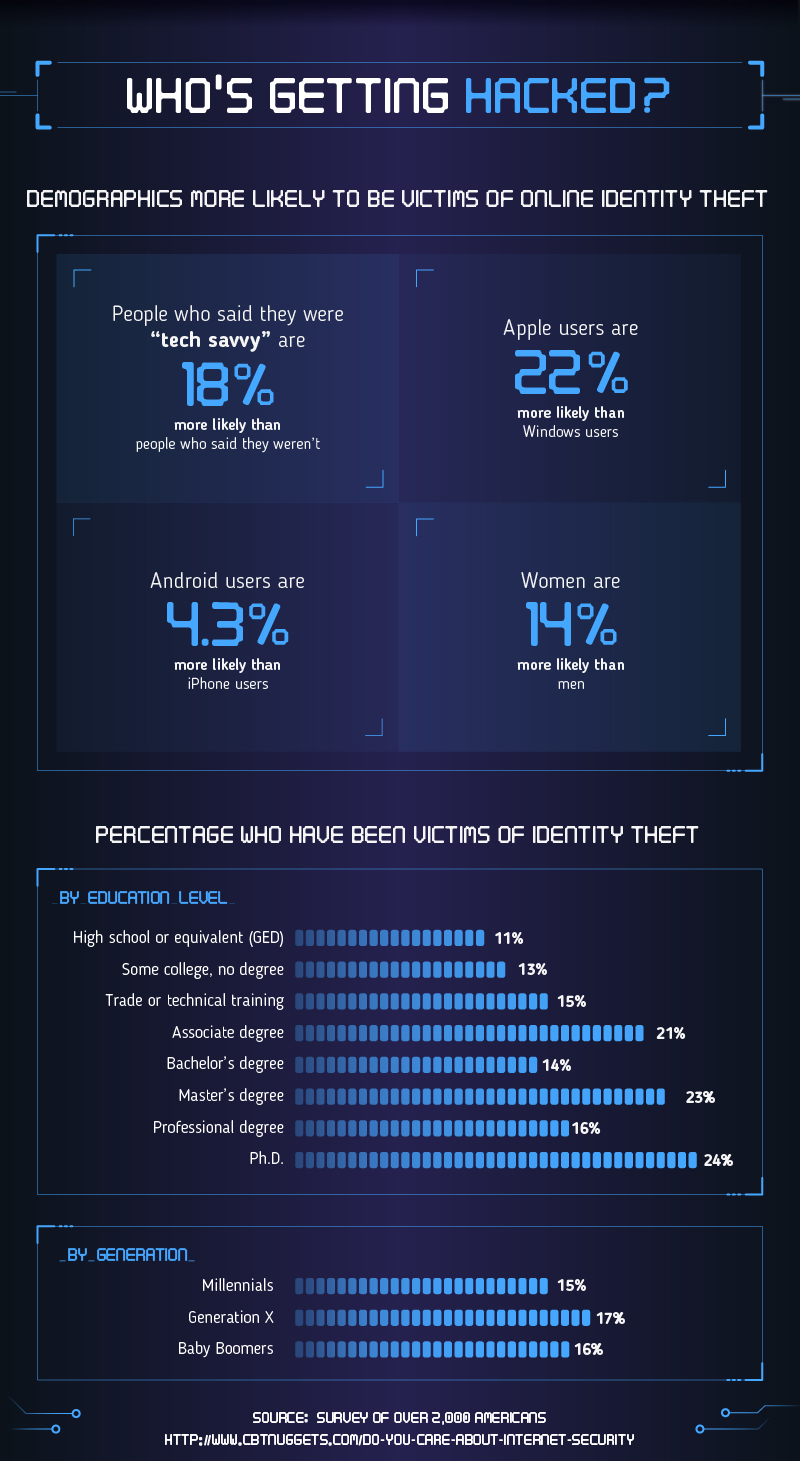Are you considering yourself a tech-savvy user? A new survey shows that competent users are 18 percent more likely to become victims of online identity theft. Furthermore, users with Ph.Ds turn out to be more prone to such scams in comparison to high school graduates. These findings belong to the online training company CBT Nuggets and are a product of a survey of 2,000 respondents.
Survey Reveals Curious Facts about Online Users
Another curious finding concerns the safety of Mac users. Typically believed to be safer than Windows users, they were found to be 22 percent more exposed to this threat than their Windows counterparts.
Millennials are less likely to become victims of theft of personal information than adults. However, this may be because “they haven’t risked their personal information compromised for as long as the other age groups”, the survey finds.
Related: Old Computers Make Users Drink and Shout, Microsoft Survey Says
66 percent of the survey participants believe having personal information compromised a medium or huge risk. Curiously, less than 4 percent took all the basic security measures to sustain a good level of online safety.
What security recommendations are most users neglecting? Most people use Wi-Fi, on smartphones or computers that are not frequently updated. Regarding passwords, at least half of the respondents were found to keep their passwords on their computers, which is never a good idea.

More findings of the survey. Image: CBT Nuggets
As explained by Tyler Tanigawa, Success Driven Inbound Marketing Specialist at CBT Nuggets:
Some of the more surprising findings include – for example – that 69 percent of those surveyed in the legal industry don’t care to follow online security practices. And 23 percent of people felt secure sharing their Social Security number with Amazon. We all need to be more conscious of the risk and protect ourselves by diversifying our passwords, using a VPN on public Wi-Fi hotspots, and taking that extra time to protect ourselves online.
Why are users not following the basics of online users? 40 percent of the respondents said they were too lazy, found security measures inconvenient, or simply didn’t care enough. Millennials were found to be the laziest in terms of online security, inconvenience, or indifference. Users with professional degrees turned out to be the most inattentive about online security, with religious and legal professionals leading the negligence chart.



